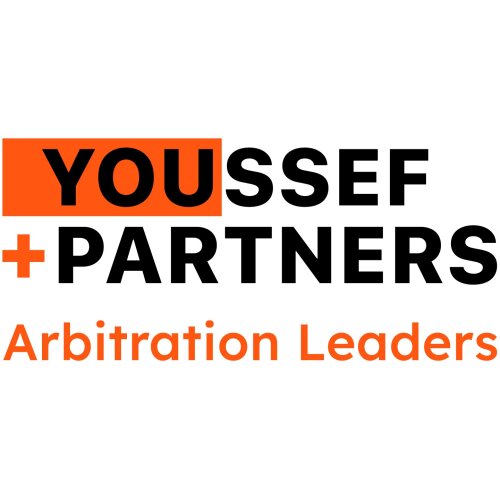Best Nonprofit & Charitable Organizations Lawyers in Giza
Share your needs with us, get contacted by law firms.
Free. Takes 2 min.
List of the best lawyers in Giza, Egypt
About Nonprofit & Charitable Organizations Law in Giza, Egypt
Nonprofit and charitable organizations play a vital role in the social and economic development of Giza, Egypt. These organizations are primarily governed by the Egyptian Civil Code, along with various other regulations and decrees issued by the government. They can include a wide array of entities such as charities, foundations, associations, and NGOs (Non-Governmental Organizations) dedicated to addressing social needs like health, education, and poverty alleviation. Given Giza's historical and cultural significance, many of these organizations also focus on cultural preservation and tourism promotion. Understanding the legal framework for nonprofit organizations in Giza is essential for ensuring compliance and maximizing mission effectiveness.
Why You May Need a Lawyer
There are several situations where legal assistance may be required for nonprofit and charitable organizations in Giza:
- Formation and Registration: Setting up a new nonprofit organization involves navigating various legal requirements, including drafting charters and bylaws, registering with the appropriate authorities, and obtaining necessary licenses.
- Tax Compliance: Understanding and abiding by tax obligations is crucial, as nonprofits often have specific exemptions and obligations under Egyptian tax laws.
- Contractual Agreements: Legal advice is necessary when entering into agreements with donors, partners, or service providers.
- Employment Law: Nonprofits often need guidance on labor laws to ensure compliance when hiring staff or engaging volunteers.
- Governance Issues: Attorneys can help with issues related to board governance, fiduciary responsibilities, and conflict of interest management.
- Dispute Resolution: Legal representation may be needed in case of disputes with stakeholders or government authorities.
Local Laws Overview
In Giza, Egypt, the legal framework governing nonprofit and charitable organizations includes:
- The Egyptian Civil Code: It provides foundational regulations for associations and foundations.
- Law No. 70 of 2017 on Associations and Other Foundations Working in the Field of Civil Work: This law regulates both domestic and foreign nonprofits, their scope of work, and funding activities.
- Tax Laws: Nonprofit organizations may benefit from tax-exempt status but must comply with specific reporting and operational requirements.
- Labor Laws: These govern the employment practices within nonprofits, including labor contracts and volunteer management.
Frequently Asked Questions
What is the process for registering a nonprofit organization in Giza?
The process involves several steps, including drafting a constitution, submitting registration documents to the Ministry of Social Solidarity, and obtaining approval and a registration number after fulfilling all the requirements.
Can a foreign entity establish a nonprofit in Egypt?
Yes, foreign entities can establish nonprofits in Egypt, but they must comply with local laws and may need additional approvals from relevant authorities.
Are there specific reporting requirements for nonprofits in Giza?
Yes, nonprofits must submit financial reports and annual activities reports to the Ministry of Social Solidarity to maintain compliance with regulations.
What are the tax obligations for a nonprofit organization?
Nonprofits may be eligible for tax-exempt status; however, they must adhere to the regulations concerning financial transparency and reporting.
What legal structure options exist for nonprofits?
Common structures in Egypt include associations, foundations, and NGOs, each with distinct characteristics and governance requirements.
Can nonprofits engage in commercial activities?
Yes, nonprofits can engage in commercial activities provided the proceeds are used to further the organization’s mission and objectives.
How can a nonprofit ensure compliance with employment laws?
Nonprofits must adhere to Egyptian labor laws, including fair hiring practices, employee contracts, and benefits. Legal counsel can help navigate these requirements.
What should be considered when drafting bylaws for a nonprofit?
Bylaws should detail governance structures, roles and responsibilities of the board, financial management, and conflict resolution procedures.
Are donations made to Egyptian nonprofits tax-deductible for donors?
This varies based on the donor's specific tax situation and the nonprofit's compliance with tax exemption requirements. Consultation with a tax professional is advisable.
What is the consequence of non-compliance with nonprofit regulations?
Non-compliance can lead to penalties, revocation of registration, or legal action, impacting the organization's ability to operate effectively.
Additional Resources
Some resources and organizations offering guidance and support for nonprofits in Giza include:
- Ministry of Social Solidarity: Responsible for regulating and supporting nonprofit activities.
- General Federation of NGOs: Provides guidance and networking opportunities for nonprofits.
- Local Law Firms Specializing in Nonprofit Law: Offer professional legal services tailored to the nonprofit sector.
Next Steps
If you need legal assistance with nonprofit and charitable organizations in Giza, consider these steps:
- Identify Your Needs: Determine the nature of legal help required, be it registration, compliance, or dispute resolution.
- Consult a Specialist: Seek advice from a lawyer specializing in nonprofit law to gain a comprehensive understanding of your obligations and options.
- Engage a Legal Representative: Hire an attorney to represent your organization for specific legal tasks or ongoing advisory services.
- Stay Informed: Keep abreast of changes in laws and regulations that could impact your organization.
Lawzana helps you find the best lawyers and law firms in Giza through a curated and pre-screened list of qualified legal professionals. Our platform offers rankings and detailed profiles of attorneys and law firms, allowing you to compare based on practice areas, including Nonprofit & Charitable Organizations, experience, and client feedback.
Each profile includes a description of the firm's areas of practice, client reviews, team members and partners, year of establishment, spoken languages, office locations, contact information, social media presence, and any published articles or resources. Most firms on our platform speak English and are experienced in both local and international legal matters.
Get a quote from top-rated law firms in Giza, Egypt — quickly, securely, and without unnecessary hassle.
Disclaimer:
The information provided on this page is for general informational purposes only and does not constitute legal advice. While we strive to ensure the accuracy and relevance of the content, legal information may change over time, and interpretations of the law can vary. You should always consult with a qualified legal professional for advice specific to your situation.
We disclaim all liability for actions taken or not taken based on the content of this page. If you believe any information is incorrect or outdated, please contact us, and we will review and update it where appropriate.










